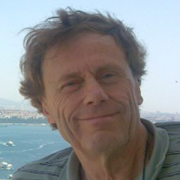I‘m grateful for choosing psychiatry for specialization. It was’ the road less traveled’, but one that “made all the difference”; a road that has led on, for me, to discovering and working in the field of cultural psychiatry.
The French expression “Liberté, égalité, fraternité” was the Magna Carta of my childhood. I grew up with a passion for human rights and for global solidarity against oppression. Later I realized the importance of mind, emotions and human relations. I devoted myself to the psychological dimension of the French national commitment to “Liberté, égalité, fraternité” as applied to mental health and the treatment of people with mental illnesses.
I studied medicine at the University of Helsinki and received my training as a psychiatrist in Finland and Sweden. I have worked in different locations in Finland, Sweden and Norway as a clinical psychiatrist and I have had long-term experience in the development and administration of mental health services in Scandinavia.
As a consultant and project manager for the World Health Organization in the Balkans and the Middle-East, at different periods between 1999 and 2004, working on WHO emergency teams and on national mental health programs, I encountered deficient and obsolete mental health services in urgent need of improvement. Frequently the services and the facilities violated basic human rights. I have a dream that every country will soon provide good mental health services! Global organizations such as the WHO and the WPA can play an important role in the development of neglected mental health services, and can also spur cooperation between countries and mental health professionals.
Currently, I work at the Transcultural Center in Stockholm, where I’m involved with the postgraduate training of the health care staff. I am also the coordinator of the Nordic Network for Cultural Psychology and Psychiatry (CPPN). I continue to be a devoted advocate of better services and conditions for mentally ill people – in cooperation with consumers, family organizations and NGOs. I’m a member of the Finnish, Swedish and American Psychiatric Associations.
Transcultural psychiatry can build bridges between people and cultures and improve the prerequisites for health care: good communication, empathy, mutual understanding and respect. Transcultural psychiatry is, in my opinion, too much focused on immigrants and on their problems in the health services, and pays too little attention to the reciprocity and the new traditions and opportunities for health care that immigrants bring with them to their new homelands.
infocppn(a)aol.com
henrik.wahlberg(a)sll.se
June 3, 2008

